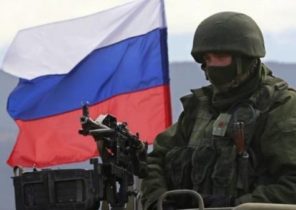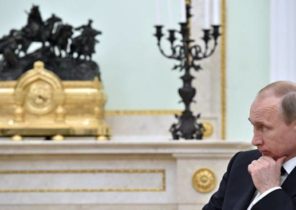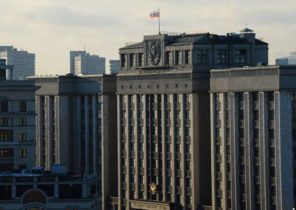Elvira Nabiullina sometimes there are situations when it is ignored. Once in the Kremlin, she had to wait half a day before Vladimir Putin took it. Later, in conversation with our correspondent said one good friend Nabiullina, it was a sign of humiliation, because Putin supposedly wanted to show who in the house called “Russia”, the owner.
But in this case, the deliberate ignoring of the question. No, 56-year-old Tatar’s just hard to take seriously — and not last role played by her fragile modest demeanor and quiet voice.
However, this impression is deceptive. In fact, her voice is very strong, and — more importantly — has great weight. As head of the Central Bank, Elvira holds in his hands nothing less the fate of the ruble and the tools to tackle the traditional problem of high inflation and supervision over the entire banking sector. And in recent months the authorities and responsibilities Nabiullina became even bigger.
Because the government, despite the fourth place in Russia by the number of those infected with the coronavirus and the collapse is so important for Russia oil price, in contrast to Western countries, is in no hurry to spend money to stimulate economic growth, the Central Bank associated with great hopes. “The Kremlin appreciates his actions to ensure economic stability, because it calms people,” said Deputy chief analyst at investment company BCS Global Markets Vyacheslav Smolyaninov, in an interview with our publication.
“In the Governor, under pressure from all sides. She became a very powerful figure in economic policy, Putin is well respected and has more influence than the economic block of the government”, — said the former Deputy head of the Central Bank of the Russian Federation Sergey Aleksashenko, until recently, engaged in teaching activities in the USA and now working as a Advisor to the Ukrainian government.
Nabiullina really works strongly as ever. Four times (last time — about a week ago) for the last five months she has lowered the refinancing rate (from 6.25% to 4.25%). Compared to Western countries, long accustomed to the fact that the key rate is almost zero, this may seem a very high figure, but in fact she is now at the lowest level in the history of Russia. And for a developing country, where in times of crisis, the key rate is usually very high to prevent capital flight, the collapse of the national currency and inflation, is altogether unusual.
However, Nabiullina, apparently, ready for more. “We have additional space for further reduction in the key rate”, — surprisingly right she said a week ago.
All this cannot be called typical. Since his appointment in 2013, Nabiullina has developed a completely different image: it is, of course, a great expert, but acts extremely conservative and very reluctant to reduce the key rate, although the country after the annexation of Crimea and the collapse in oil prices in 2014 ended up in the longest economic crisis since 1990-ies.
“For several years, she acted like a textbook and was holier than the Pope,” says Smolyaninov.
Given the dramatic situation in Russia in 2014, one could say that this was not surprising. Like other representatives of the Russian authorities, Elvira was truly shocked by the events. The ruble in the blink of an eye has lost half its value. Nabiullina, who did not have much experience in monetary policy, pointless and useless were thrown to the wind tens of billions of dollars to support the national currency. However in November 2014 she is, according to Aleksashenko, took a wise and historical decision to “release” the ruble. And then she too slowly raised the refinancing rate. Only in the night of 16 December 2014 was a resolute step to the very last moment to prevent an unprecedented banking crisis: Nabiullina raised the key rate to 17%, and for two years she remained in double digits.
Economic growth has not resumed, but, whatever it was, Elvira was able to reduce inflation — the scourge of post-Communist Russia — to less than 4%. For this British magazine the Banker at the end of 2016 called it “the best head of the Central Bank” in Europe. And the magazine Euromoney in 2015 named her “head of the Central Bank of the year”. In addition, it made the list of the most influential women in the world, according to Forbes.
Looks like the power of this woman with remarkable hair parted learned very early. In 1994 she came to the Ministry of economic development, which was then headed by the liberal Yevgeny Yasin. After Putin came to power in 2000, the post of Minister went to the Russian German German Gref, Nabiullina became his Deputy, and in 2007 a successor, when Gref head of Sberbank, the largest Bank in the world.
In General, it is possible to say that the environment Nabiullina was liberal. According to some insider, she, the wife of the rector of the Higher school of economy Yaroslav Kuzminova, is still included in the liberal and Pro-Western camp, although in the Russian establishment dominated by hardliners against the West. However, life in the conditions of Russian propaganda affects Nabiullina. She has to adapt to the jingoistic environment and to maneuver among the “hawks”.
But surrounded by “hawks” is one thing. Another point: in the Russian establishment dominated by men. In Parliament there are almost no women deputies, and the woman is not the head of any Russian concern. Only in the financial sector an important post gave the woman, and then only with difficulty. When it comes to money in Russia since the Soviet era last word traditionally belongs to women. Women always needed, when there are crisis situations, and this is no exception. Although the Russian economy rather successfully copes with the consequences of the outbreak of coronavirus, and this year the decline will be “only” 5% (since the “lockdown” in Russia is not so rigid as in the West), but due to the absence of reforms, many years of stagnation is not going anywhere and after a coronavirus.
Elvira is one of those who constantly indicates that economic growth will be at best 2% (negligible for a developing country), if not the fundamental — and in any case belated reforms. In the area of its responsibility it has already shown how this works: over the past six years she not only cared about transparency and the ability of the Central Bank to liaise with the external world, but also cleared the overgrown banking sector, revoking the licenses of several hundred questionable financial institutions.
These steps she has earned universal respect. Including respect for Putin, who once forced her to spend a few hours in front of closed doors in the Kremlin.







